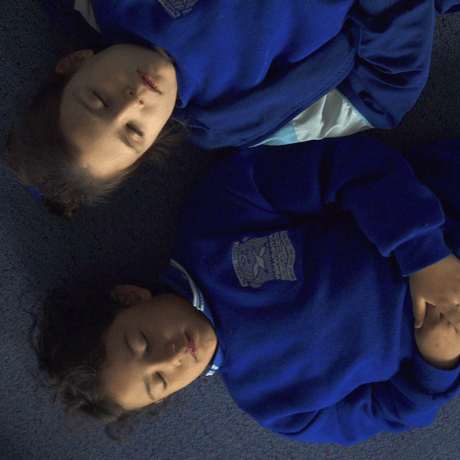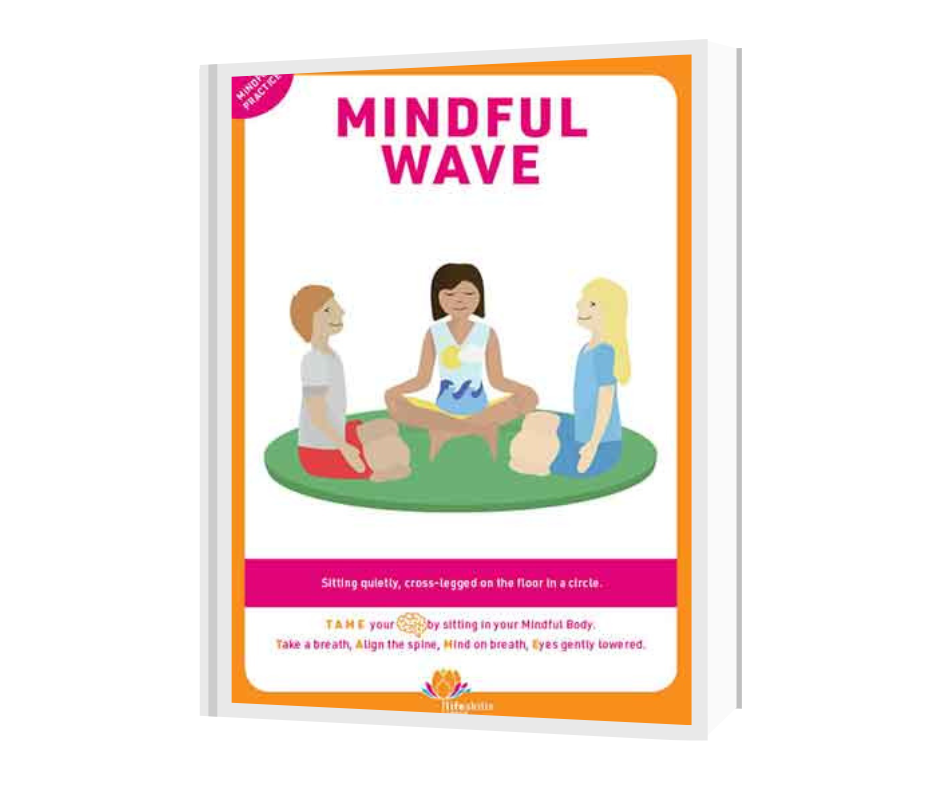 The Mindfulness Activity Cards provide a fun way to introduce the skills needed to develop social and emotional learning. Learn to TAME your brain by practicing focused attention, breathing techniques, visualisation, and much more to help build self-awareness, self-management and physical awareness.
The Mindfulness Activity Cards provide a fun way to introduce the skills needed to develop social and emotional learning. Learn to TAME your brain by practicing focused attention, breathing techniques, visualisation, and much more to help build self-awareness, self-management and physical awareness.
The activity cards can be used independently of one another to give you flexibility to select the specific content that you need to nurture the social and emotional learning of your own students or children. They have been designed using a comprehensive evidence base, globally recognised research and learning gained from working with thousands of schools and families.
The activity cards draw on our model for social and emotional Learning: self-awareness, self-management, physical awareness, social awareness, positive relationships, and wise decisions.
Students develop their self-awareness and increase impulse control, focus and empathy. All our Mindfulness activity cards utilises scientifically proven mindfulness techniques, effective pedagogical practices, and cross-sectional research in cognitive affective neuroscience to teach students to pay attention to their experiences in a non-reactive way.
Students develop tools to understand and manage their emotions and physical and social changes through various stages of life. These activity cards also encourage students to be aware of their own and others’ safety, health and wellbeing.
The questions encourage learners to be reflective and to think about their own thinking and learning.
The questions provide another opportunity for the teacher to give specific feedback to their students.
Emotional
Studies are finding that mindfulness plays a part in improving our emotional lives and how we respond to the people and world around us. Cahn & Polich (2006) found that mindfulness meditation activates the brain region associated with more adaptive responses to stressful or negative situations.
Regular mindfulness and breathing may benefit our emotional well being by:
Improving working memory, creativity, attention span and reaction speeds.
Reducing anxiety, stress, depression, exhaustion and irritability
Promoting emotional awareness and the ability to manage emotions
Encouraging calmness
Teaching students to respond, rather than react
Promoting self regulation
Improving impulse control
Developing an understanding of values, personal qualities and emotional responses
Academic
Other than helping prepare students for exams and tests, mindfulness is valuable throughout the term as it offers self-discipline and increased focus for children. Developmental Psychology (2015) states that mindfulness programs, ‘not only create more academically capable, successful students, but actually create more caring, less stressed, kind students.’
Mindfulness can support students academically as it:
Enhances learning readiness
Encourages self-discipline
Increases focus and concentration
Can improve student grades.
Mental
As we practice mindfulness, we learn to focus our attention on one thing at a time. Developing these skills can help students with their concentration in class, preparing them mentally for exams and even help improve their grades! Moore & Malinowski (2009) suggest that mindfulness is intimately linked to improvements of attentional functions and cognitive flexibility.
Our mental wellbeing can improve when we become more mindful and practice our breathing techniques. In fact, our brain actually changes and develops in a positive and healthy way! (Seigel, 2009).
Mindfulness can assist students to:
Develop concentration and focus
Release stress and anxiety
Improve quality of attention
Develop a connection between the mind and body
Social
At Life Skills Group, we believe that developing empathy and positive relationships is essential in building strong, healthy communities. Seigel (2009) suggests that ‘mindfulness also promotes an emergent sense of a vital and resilient self.’
Mindfulness and breathing may help to
Boosts confidence
Teach self respect and respect of others
Encourage altruism
Develop empathy
Encourage healthy and positive relationships.
Increased self-awareness and self-regulation
Increased concentration, coordination, and energy levels
Improved balance, posture, and natural flexibility
The ability to recognise the rights, values, and feelings of others.
Accepting differences and managing conflict
Relaxation and mindfulness techniques
Teaches respect for the body
Increased knowledge of how physical activity contributes to a healthy and active lifestyle
Decreased stress and anxiety, enhanced health and wellbeing
Students learn to recognise their strengths, be able to self-regulate, and know where to seek help if needed.
Increase understanding of how to manage emotions and make positive choices
Develop the skills to identify, communicate and manage their emotions.

Contains:
43 double-sided A4 activity sheets including a poster and teaching notes.
Curriculum aligned, including specific outcomes.
Includes Mindful Wave, Lazy 8, Angel Breath, Brain Bubbles, Inside Ocean and more.
BONUS: Includes Character Strengths and Fundamental Movement sets
Cost: $99 (ex GST)
